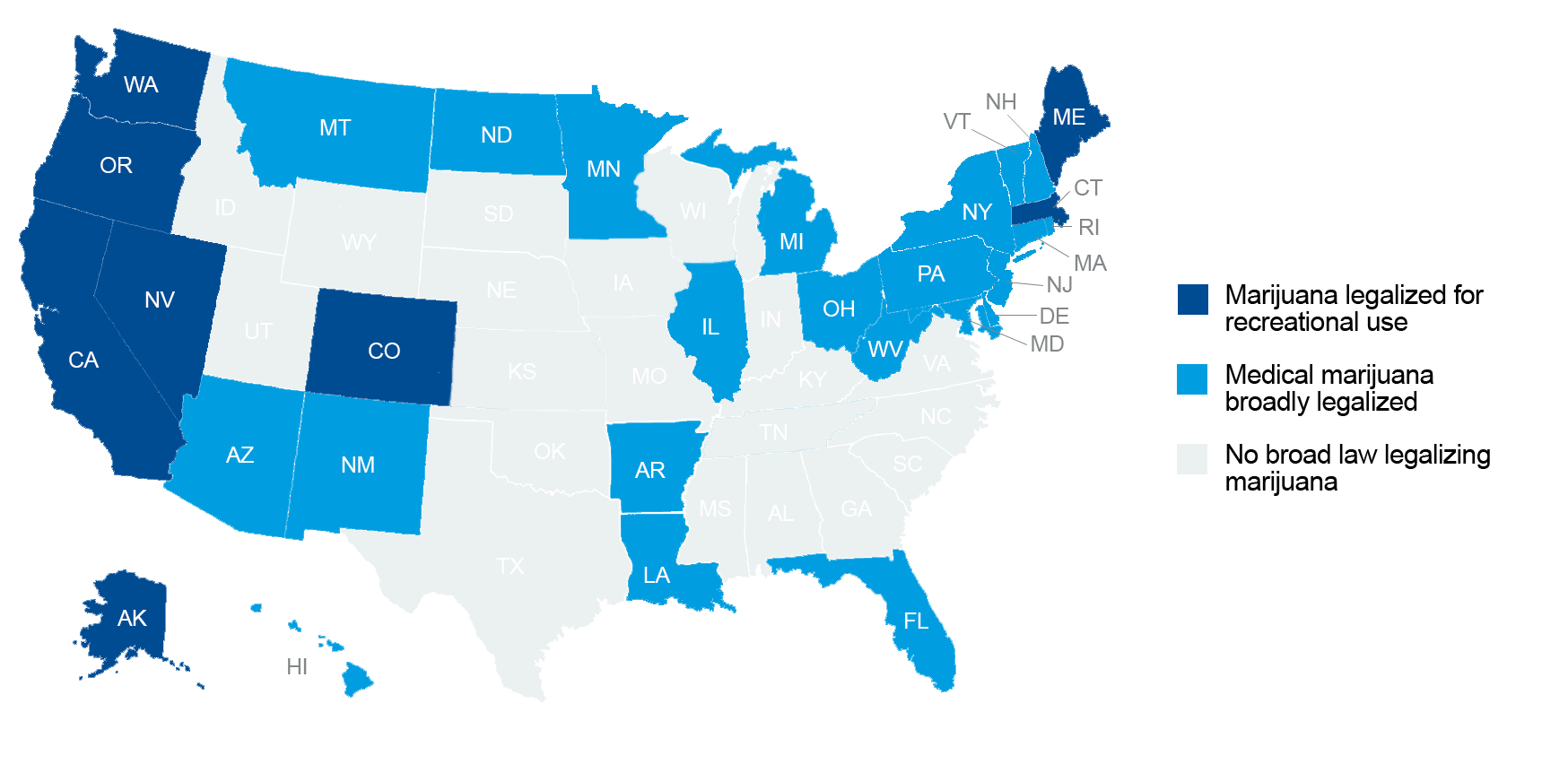Late Wednesday night, the House Rules Committee blocked the Rohrabacher-Blumenauer amendment from a vote. The amendment prohibits the Department of Justice from using federal funds to interfere with the implementation of state laws that legalize medical marijuana. Earlier versions of the amendment (then known as the Rohrabacher-Farr amendment) have been included in approved budget bills since 2014. While the amendment does not alter the legal status of marijuana at the federal level or cover state laws permitting recreational usage, it did provide some protection for states with medical marijuana legislation from federal intervention. Without any additional action, the limitations of the amendment are set to lapse on September 30, 2017.
As noted in a previous blog post, the Trump administration, particularly the Department of Justice, has signaled that they intend to more rigorously enforce federal laws regarding marijuana. Attorney General Jeff Sessions personally asked Congress to undo the protection granted by the Rohrabacher-Farr amendment, stating that it inhibits the Department’s authority to enforce the Controlled Substances Act. In his letter to congressional leadership, Sessions said:
I believe it would be unwise for Congress to restrict the discretion of the Department to fund particular prosecutions, particularly in the midst of an historic drug epidemic and potentially long-term uptick in violent crime. The Department must be in a position to use all laws available to combat the transnational drug organizations and dangerous drug traffickers who threaten American lives.
Without the limitations of the Rohrabacher-Blumenauer amendment, the Department of Justice would be free to invest their resources in prosecuting dispensaries and medical marijuana users for violations of federal law. Twenty-nine states and the District of Columbia would be impacted.
States, meanwhile, are not walking away from the continued expansion of legalized marijuana despite the potential uncertainty. On Election Day 2016, voters in eight states expanded the legalization of marijuana in some capacity. In 2017, 23 states introduced bills to legalize and regulate recreational marijuana use and 16 states introduced bills to create comprehensive medical marijuana programs. While the majority of these bills died, several states still have legislation pending and West Virginia passed medical marijuana legislation. Vermont Governor Phil Scott created a Marijuana Advisory Commission to study the best way to legalize recreational marijuana use in the state and the New Hampshire legislature has established a commission to study the legalization, regulation, and taxation of marijuana.


For cash-strapped states, the potential taxes and fees generated from legalized marijuana may be too much to give up without a fight; legalized marijuana is estimated to be a $6 billion business that employs 150,000 people and is on track to create more jobs than the manufacturing sector by 2020. Colorado, the first state to legalize recreational marijuana, has already collected more than half a billion dollars since 2014. Earlier this year, Nevada generated $3 million in sales in the first four days that recreational marijuana was legal.
The protections of the Rohrabacher-Blumenauer amendment may still be implemented; the Senate included the amendment in its version of the federal budget, so the matter will have to be resolved in conference committee to see if the amendment will make it into the final budget. A federal crackdown on marijuana is not very popular with voters; a recent Quinnipiac poll found that 75 percent of respondents oppose the government enforcing federal laws against marijuana in states that have legalized the drug for medicinal or recreational use.
| Poll Question | Yes | No | Don't Know/No Answer |
| Do you think that the use of marijuana should be made legal in the United States, or not? | 61% | 33% | 5% |
| Poll Question | Support | Oppose | Don't Know/No Answer |
| Would you support or oppose the government enforcing federal laws against marijuana in states that have already legalized medical or recreational marijuana? | 20% | 75% | 5% |
| Do you support or oppose allowing adults to legally use marijuana for medical purposes if their doctor prescribes it? | 94% | 4% | 1% |
Source: https://poll.qu.edu/national/release-detail?ReleaseID=2477
Even if the limitations of the Rohrabacher-Blumenauer amendment are extended, the Department of Justice has other tools they can use to disrupt state-legalized marijuana; Attorney General Sessions has stated that the Department of Justice will resurrect civil asset forfeiture, which allows police departments to seize property of those suspected of a crime (even if they are never charged or convicted), in part to target drug offenders.
That may be an incentive for members of Congress to find a way to reinstate the amendment in some form. Even if the limitations of the Rohrabacher-Blumenauer amendment are extended, the Department of Justice has other tools they can use to disrupt state-legalized marijuana; Attorney General Sessions has stated that the Department of Justice will resurrect civil asset forfeiture, which allows police departments to seize property of those suspected of a crime (even if they are never charged or convicted), in part to target drug offenders. So even if the potential federalism showdown over Rohrabacher-Blumenauer is averted, another federalism conflict may by brewing.
Heather Trela is chief of staff and a fellow at the Rockefeller Institute of Government

